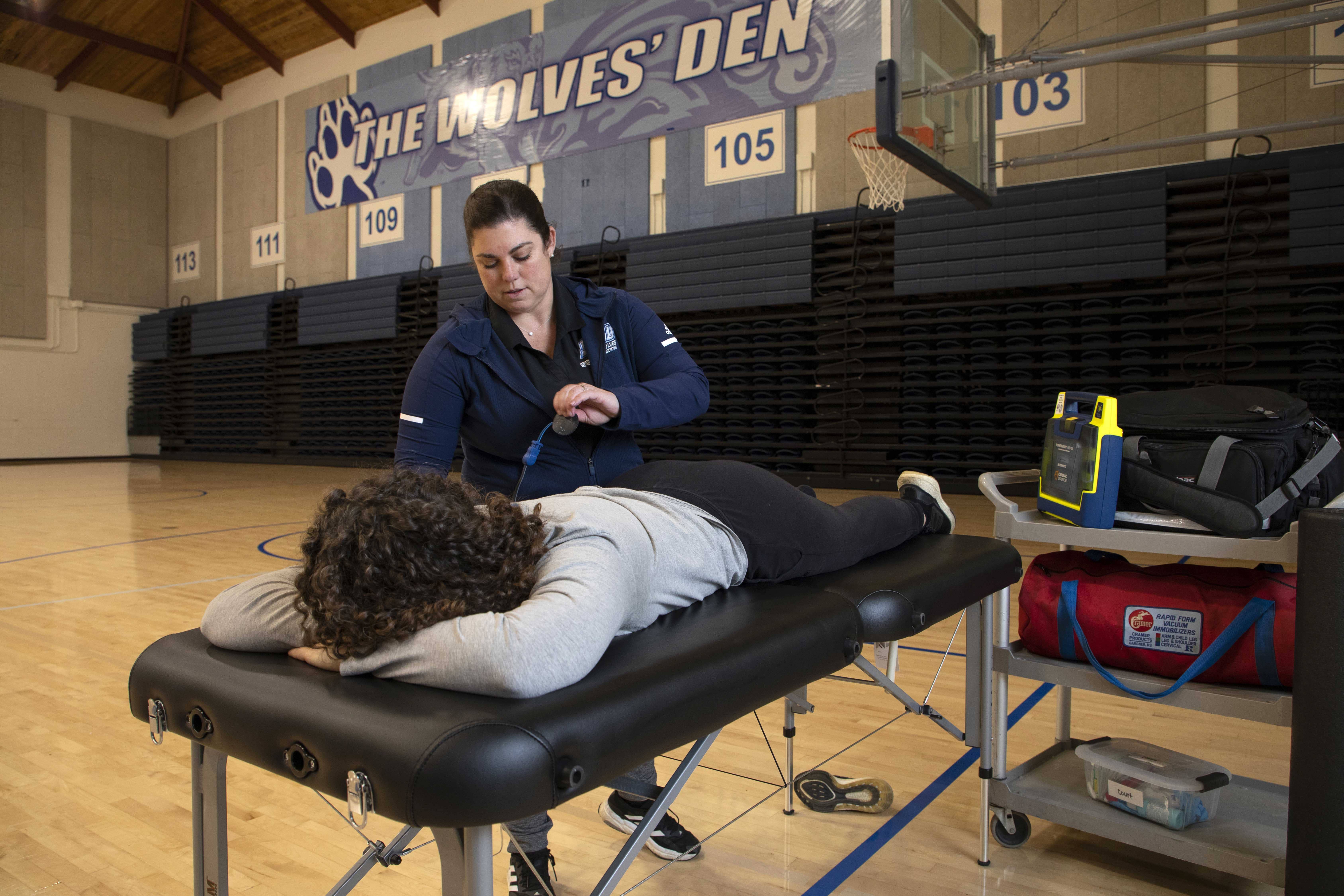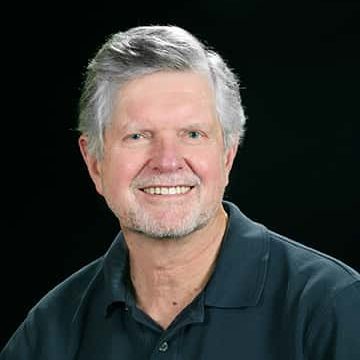
There’s long been a stigma against athletes opening up about their mental health struggles. They’re expected to be tough in mind and body, and not show vulnerability. All of that is changing. And for the better. Elite players in a wide range of sports—tennis, basketball, swimming, football, etc.— have gone public in addressing their mental health challenges.
NBA star Kevin Love struggles with anxiety and depression. During a 2018 game between Love’s Cleveland Cavaliers and the Atlanta Hawks, the now five-time All-Star suffered a panic attack. The incident prompted him to speak out about his mental health, and to establish the Kevin Love Fund. The fund’s purpose is to inspire and provide tools to enable others to lead healthy lives, both mentally and physically. “If you’re having a hard time… you’re not alone,” Love says. “Sharing what you’re going through could be the most important thing you do. It was for me.” Olympian swimmer Michael Phelps, winner of 23 gold medals, suffered from anxiety, depression and suicidal thoughts. In 2014 he checked himself into an in-patient treatment center for 45 days. He says his struggle is a lifelong journey. Phelps continues with therapy and to practice measures he learned at the center. He established the Michael Phelps Foundation to promote healthy, active lifestyles, especially for children. At the 2021 Beijing Olympics, gymnast Simone Biles withdrew from the vault competition and canceled three other events. Some fans criticized her decision while others commended her for speaking out. In an interview with Good Housekeeping, Biles said, “The word ‘champion’ used to just mean being on top or breaking records. Now it means being vulnerable, showing your inner strength, being courageous.”
Last year at a Child Mind Institute fundraising event in Menlo Park, Hall of Fame NFL quarterback Steve Young talked about having sleepless nights and bouts of anxiety leading up to games. Attributed to childhood separation anxiety, the problem went undiagnosed well into his time as quarterback of the San Francisco 49ers.
What’s prompted these star athletes and others to speak out about their mental health issues? And, is their courage having a trickle-down effect?
Sports psychology’s role
Sports psychology is the study of how the mind affects physical activity and athletic performance. Applied sports psychology puts theory into practice. The Association for Applied Sports Psychology states on its website: “Potential isn’t realized by chance, and we know natural ability is only part of the equation. The field of sport and performance psychology focuses on providing every performer the resources to power their inner edge by strengthening the ability to perform, as well as the ability to thrive.”
Using sports psychology input has become a critical part of training. Sports psychologists’ clients range from professional to recreational, from Olympic athletes to Masters Challenge competitors. The psychologists seek to provide a team with a competitive edge by focusing on the mental aspects of the game. The baseball great Yogi Berra would agree with that. Known for his “Yogi-isms,” he said, “90% of the game is half mental.”
Sonoma State University
For the past eight years, with the exception of 2021, the National Collegiate Athletic Association (NCAA) has provided $100,000 annually to support its Innovations in Research and Practice (IRP) grant program. Monies go toward research and data-driven pilot projects that enhance student-athlete psychosocial wellbeing and mental health. In 2017 Sonoma State University (SSU) received a grant of approximately $25,000 to create a program providing mental health support for athletes recovering from sports injury.

The importance of the psychological health of injured athletes was recognized as far back as 1995. A paper written by Vincent Granito, a member of the Sports Psychology Department at John F. Kennedy University in Orinda, and Jeffrey Hogan and Lisa Varnum, both athletic trainers at UC Davis, showed that an injury—followed by subsequent treatment and lengthy rehabilitation—can cause an athletes’ emotions to range from frustration and anger, to confusion and even depression. Based on that report, they established the Performance Enhancement Group (PEG) to support injured collegiate athletes that integrated social support and psychological skills training into the rehabilitation process. The PEG model was first implemented at UC Davis and has since been customized for use by other colleges and universities throughout the country.
Following the awarding of the NCAA IRP grant, Puentes developed SSU’s “Injured Athlete Wellness Program.” Puentes played multiple competitive sports while growing up and continued with baseball into college. He still plays the sport recreationally. Puentes received his training in sports psychology as a doctoral practicum trainee at the University of Southern California, and then completed his pre-doctoral and post-doctoral training at the University of Notre Dame. In addition to his work with SSU’s golf and softball teams, Puentes works with Santa Rosa Junior College, San Jose State Athletics and has a private practice. He and a staff of four work with athletes and sports teams throughout California. Sonoma State’s program extends over eight weeks and consists of a series of 10-minute iPad modules. Topics include goal setting and motivation, the power of support, getting into the zone for recovery, the role thoughts play in recovery, sport psychology skills, maintaining “hardiness” and returning to a sport after recovery. “Research suggests that student athletes who learn and utilize core sport psychology skills during rehabilitation are more likely to return to their sport healthy and faster than those who do not,” Puentes says.
“Athletic trainers engaged with the program so they could offer guidance to participants” Rudy says. “The goal was to make it user friendly so the athletes could listen to the modules during rehab sessions at the Sport Medicine Center or on their own.”
According to feedback SSU provided the NCAA in a final report on outcomes of the first year of its Injured Athlete Wellness Program, participants said: “Enabled me to think positively and be optimistic about my injury… Learned skills on how to cope with my injured time… Helped me set good goals during recovery.”
Though disrupted by COVID, the program modules and consultation with a sports psychologist continue to be available to SSU’s injured athletes.
Rebounding from an injury

Rebound is the title of a book written by co-authors Carrie Jackson, a local mental-skills coach and SSU alum, and journalist Cindy Kuzma. As the title suggests, it’s all about bouncing back from a sport injury. The book identifies 15 mental skills that can help with recovery, and drills to enable that. There are also interviews with injured athletes discussing their paths to recovery.
Jackson participated in a number of non-traditional sports—car racing, snowboarding and rock climbing. When she tore the meniscus in her knee, she didn’t have the skills needed to help with her mental recovery. “For an athlete, being injured can be high stress,” Jackson says. “Athletes often heal physically before they heal mentally. It helps if the athlete is guided through a return-to-play environment that addresses both physical and mental aspects of rehabilitation.”
Years later while studying sport psychology in graduate school, Jackson injured the same knee. “I put my newly acquired knowledge to work and the difference in my first knee injury and the second was profound,” Jackson says. Wanting to share that knowledge became the catalyst for writing Rebound.
Co-author Kuzma is a journalist and athlete. She’s completed more than 20 marathons. Four stress fractures, high hamstring tendinopathy and Achilles heel problems provide her with first hand knowledge of the mental challenges of recovery. Jackson and Kuzma didn’t stop with publication of Rebound. They formed The Injured Athletes Club—find it at injuredathletesclub.com—a collaborative effort between Jackson and Kuzma that includes a podcast and a Facebook support group all tied to Rebound’s theme of training the mind to bounce back stronger from a sports injury. The podcast series starts its sixth season in February 2023 with 24 episodes alternating between injured athlete interviews and topics from the book. The Facebook support group is a safe space where athletes share stories about their rehabilitation process and take comfort in knowing they are not alone. Approximately 3,000 followers have signed on.
National Alliance of Mental Illness

The National Alliance of Mental Illness (NAMI) is one of the largest grassroots mental health organizations in the U.S., dedicated to building better lives for those affected by mental illness. The organization began in 1979 as a small group of families gathered around a kitchen table in Wisconsin, looking for ways to address the lack of services available to their family members suffering from mental illness. Today NAMI has an alliance of more than 600 affiliates that work in communities to raise awareness and to provide support and education to those in need. Mary-Frances Walsh, executive director of NAMI Sonoma County, has a graduate degree in public health, and experience in hospital administration from her time in New York City and Chicago. “Seeking help early when hope for recovery is best, involves awareness, education and support. As a family member affected by mental illness, I know that awareness, education and support can change, even save a life. This drives my commitment to NAMI’s programs and to the commitment we serve,” she says. NAMI Sonoma County offers free mental health support through online groups for adults in recovery from a mental health condition, for adults supporting a loved one with a mental health condition, and wellness and stress relief groups for those interested in building resiliency and everyday stress management skills. Additionally, a Warmline (866-960-6264) offers one-on-one information, support and local resources.
NAMI’s “ambassadors,” all of whom have dealt with mental health challenges, come from the entertainment industry, sports, literature, music and the arts. “Our ambassadors are powerful partners who educate, advocate and use their platforms and personality to help expand a national mental health movement that leads to better lives for anyone that may be deterred from seeking help for mental health symptoms due to stigma,” Walsh says. One of those ambassadors is NFL lineman Chris Hubbard, offensive tackle for the Cleveland Browns. In 2019, Hubbard participated in NAMI’s docuseries, “Strength Over Silence.” His video was created to raise awareness and erase the stigma associated with mental health, while encouraging people to seek help. Hubbard returned to his former high school in Columbus, Georgia where he spoke to young athletes gathered in the gymnasium about his own struggles with the pressures and expectations in playing professional sports. “Football really wears on you,” Hubbard says in the video. “Everyday you’re putting your body on the line. The stress, anxiety and depression caught up with me. In a week my weight dropped from 307 to 275 pounds.” Hubbard sought help. “We’re told that if you’re going through something… push through it, nothing’s wrong with you, be a man. We never realize it until we get to this deep point in life to where we were like, man, something is going on with me.” Hubbard revealed a life-changing moment when a high school friend committed suicide after being bullied for being gay and from problems at home. That incident changed his perspective on the importance of getting help for yourself, and others.
Though NAMI Sonoma County’s Warmline is not a crises call center, calls for a help with a range of needs related to mental health have incsince the pandemic have increased considerably . Mental health issues resulting from the pandemic have gotten the attention of the press. Walsh speculates that this increased awareness may be why many now feel more confident, perhaps even compelled, to speak out. “Having a role model like Chris Hubbard share his willingness to seek help for his mental health, just as he does for his physical health, goes a long way toward erasing mental health stigma,” she says.
Eating Disorders
A study of NCAA Division I athletes showed that over one-third of females reported attitudes and symptoms that place them at risk for anorexia nervosa. Though most athletes with eating disorders tend to be female, male athletes are also susceptible. Athletes involved in individual competitions like gymnasts, runners, swimmers and wrestlers—and sports that tend to focus on body image like figure skating—can be prone to eating disorders. They get trapped into thinking weight loss will improve performance when it’s the exact opposite. Malnutrition, fatigue and difficulty concentrating lead to poor performance. And there’s an increased risk of injury and stress fractures due to decreased bone density.
Who can forget the horrific incident when seven weeks prior to the 1994 Olympics an assailant hired by figure skater Tonya Harding’s ex-husband clubbed rival Nancy Kerrigan in the knee. Though Kerrigan went on to win the silver medal at that year’s winter games in Lillehammer, Norway, the stress of that incident eventually caught up with her. In a 2017 interview with People magazine, she revealed that she developed an eating disorder following the assault. “I would avoid food because it was something I could do,” she said. “I don’t know why, but that seemed like an accomplishment.” As a spokesperson for the disorder, Kerrigan produced a documentary called “Why Don’t You Lose 5 Pounds?” Kerrigan recovered and participated in Season 24 of “Dancing with the Stars” and, at age 52, toured with Ice Dream 2022.
Social Media
Joe Montana, Jackie Joyner-Kersee, Usian Bolt and other pre-2000 athletes competed without the distraction of social media. They could focus on the thrill of the game. Social media changed all that in good and not-so-good ways. The exposure of social media can enhance fame and lead to lucrative sponsorships. Athletes can resort to social media to inspire young athletes and to promote worthy causes. Fans can use social media to praise and share accomplishments of their favorite athletes. And yet there is a downside. Abusive comments posted on social media directed at an athlete’s poor performance in a game can lead to stress. Not only do the players have to deal with letting their teammates down when things go wrong, they’re often subjected to abuse and ridicule in posts on Twitter, Facebook and Instagram. Pickswise, an online sports betting site, analyzed data collected from Twitter for the period June 2020 to June 2021. They ranked athletes who received the most online abuse. NBA star LeBron James led with 122,568. Others included NASCAR’s Bubba Wallace with 21,750 and Golden State Warriors star Steph Curry at 11,757. Seems social media has become a convenient platform for abusive behavior over the last 20 years.
Mental health is an important aspect of overall health and wellbeing—and, like everyone, athletes can experience depression, anxiety and stress. For them the risk is enhanced by several factors—pressures of performing at a high level, potential of a season- or career-ending injury, demands of intense training and competition. For elite athletes, there’s also the rigors of travel—with long periods away from home—and the scrutiny that comes with being in the spotlight. Star athletes like Kevin Love, Michael Phelps, Simone Biles, Steve Young, Nancy Kerrigan, Chris Hubbard, and others, have stepped up and spoken out about their struggles. Their courage has helped erase the stigma of mental health, and makes the playing field a better place for all of us.
And thanks to a growing number of mental-health-aware Certified Athletic Trainers and sports psychologists in the North Bay, local athletes can find the services they need to overcome the challenges of injury and recovery—both physically and mentally.





175 thoughts on “Of Mind and Body”
I?¦m not sure the place you are getting your information, however great topic. I must spend some time learning more or understanding more. Thank you for fantastic info I used to be looking for this information for my mission.
I will right away take hold of your rss feed as I can’t find your email subscription hyperlink or newsletter service. Do you’ve any? Please allow me understand so that I may subscribe. Thanks.
fantastic publish, very informative. I ponder why the other specialists of this sector don’t understand this. You must proceed your writing. I’m confident, you’ve a huge readers’ base already!
Hey, you used to write great, but the last several posts have been kinda boringK I miss your great writings. Past few posts are just a bit out of track! come on!
I am now not certain the place you’re getting your info, however good topic. I needs to spend some time learning more or understanding more. Thanks for fantastic info I was on the lookout for this info for my mission.
I believe one of your advertisements caused my internet browser to resize, you might want to put that on your blacklist.
superb post.Ne’er knew this, thanks for letting me know.
Very interesting topic, regards for putting up.
I am continuously searching online for tips that can benefit me. Thanks!
I loved up to you will receive carried out proper here. The sketch is tasteful, your authored material stylish. nonetheless, you command get bought an shakiness over that you wish be delivering the following. sick indisputably come further before again since exactly the similar just about a lot steadily inside case you protect this hike.
I conceive you have observed some very interesting points, appreciate it for the post.
WONDERFUL Post.thanks for share..more wait .. …
Heya i’m for the primary time here. I found this board and I find It truly useful & it helped me out a lot. I’m hoping to offer one thing again and help others like you helped me.
An interesting discussion is value comment. I believe that it is best to write more on this subject, it may not be a taboo topic but generally individuals are not enough to talk on such topics. To the next. Cheers
good post.Ne’er knew this, regards for letting me know.
I?m no longer certain where you are getting your information, however good topic. I must spend a while studying much more or figuring out more. Thanks for excellent information I used to be searching for this info for my mission.
What?s Happening i’m new to this, I stumbled upon this I have discovered It absolutely helpful and it has aided me out loads. I am hoping to contribute & assist different users like its helped me. Great job.
Your home is valueble for me. Thanks!…
There is perceptibly a lot to identify about this. I feel you made certain nice points in features also.
F*ckin’ amazing things here. I am very glad to look your post. Thanks a lot and i am taking a look ahead to contact you. Will you please drop me a mail?
An interesting discussion is worth comment. I think that you should write more on this topic, it might not be a taboo subject but generally people are not enough to speak on such topics. To the next. Cheers
Your place is valueble for me. Thanks!…
Simply a smiling visitant here to share the love (:, btw great layout.
fantastic post.Never knew this, appreciate it for letting me know.
I enjoy forgathering useful info, this post has got me even more info! .